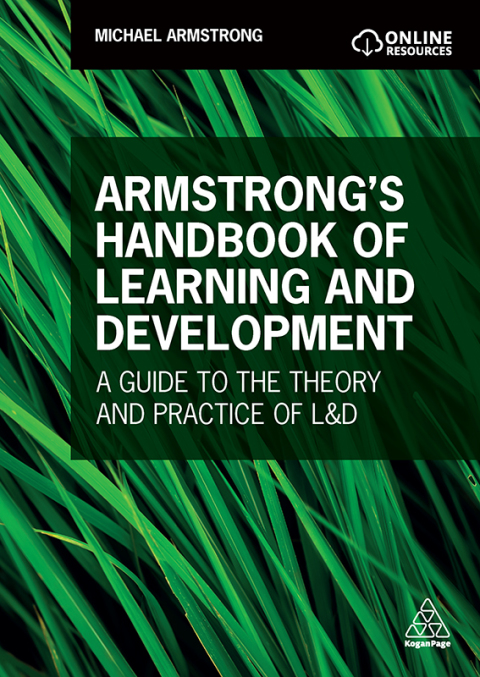Description
Efnisyfirlit
- Title Page
- Copyright
- Dedication
- Brief Contents
- Contents
- Preface
- About the Author
- Part I: Negotiation Essentials
- Chapter 1: Negotiation: The Mind and the Heart
- The Mind and Heart
- Relationships versus Economics
- Satisficing versus Optimizing
- Short- versus Long-Term Relationships
- Intra- versus Inter-organizational Negotiation
- Low- versus High-Stakes Negotiation
- Win–Win, Win–Lose, and Lose–Lose Negotiation
- Negotiation as a Core Management Competency
- Knowledge Economy
- Specialized Expertise
- Information Technology
- Globalization
- Negotiation Traps
- Becoming an Effective Negotiator
- Feedback
- Strategy
- Focused Practice
- Debunking Negotiation Myths
- Myth 1: Negotiations Are Fixed-Sum
- Myth 2: You Need to Be Either Tough or Soft
- Myth 3: Good Negotiators Are Born
- Myth 4: Good Negotiators Rely on Intuition
- Chapter Capstone
- Chapter 2: Preparation: What to do Before Negotiation
- Self-Assessment
- Targets and Aspirations
- BATNA
- Reservation Point
- Focal Points
- Sunk Costs
- Target Point versus Reservation Point
- Negotiation Issues
- Issue Alternatives
- Multi-issue Proposals
- Risk and Uncertainty
- Endowment Effects
- Buyer’s Remorse and Seller’s Regret
- Negotiator Confidence
- Perspective-Taking
- Counterparty
- Are the Parties Monolithic?
- Counterparties’ Interests and Positions
- Counterparties’ BATNAs
- Situational Awareness
- One-Shot versus Long-Term
- Transactions versus Disputes
- Linkage Effects
- False versus Sincere Negotiations
- Is It Legal to Negotiate?
- Ratification
- Time Constraints
- Formal versus Handshake Agreement
- Onsite versus Offsite Meetings
- Public versus Private
- Scripted versus Unscripted
- Single versus Multiple Offers
- Chapter Capstone
- Chapter 3: Distributive Negotiation: Claiming Value
- The Bargaining Zone
- Bargaining Surplus
- Negotiator’s Surplus
- Value-Claiming Strategies
- Accurately Assess Your BATNA
- Unpack Alternatives
- Improve Your BATNA
- Determine Your Reservation Point, but Do Not Reveal It
- Research the Other Party’s BATNA and Estimate Their Reservation Point
- Set High Aspirations (Be Realistic but Optimistic)
- First Offers
- Anchoring Information Model
- Anchoring Effect
- Range Offers
- Precise versus Round Numbers
- Early versus Late First Offers
- Re-anchoring
- Concessions
- Reciprocity versus Aversion
- Concession Pattern
- Magnitude of Concessions
- Timing of Concessions
- Substantiation
- Power Conversation Tactics
- Constraints versus Disparagement
- “Agreement” versus “Option”
- Fairness Arguments
- Social Comparison
- Equity Principle
- Final Offers
- Face-Saving
- Chapter Capstone
- Chapter 4: Integrative Negotiation: Expanding the Pie
- Fixed-Sum versus Variable-Sum Negotiation
- False Conflict
- Fixed-Pie Perception
- Integrative Negotiation
- Compromise versus Integrative Negotiation
- Pareto Optimal Agreements
- Assessing the Likelihood of Win–Win Agreement
- Multiple Issues
- Add Issues
- Side Deals
- Differing Strengths of Preference
- Strategies for Expanding the Pie
- Separate Positions from Interests
- Perspective Taking
- Ask Questions about Interests and Priorities
- Reveal Information about Interests and Priorities
- Unbundle the Issues
- Value-Added Trade-offs (Logrolling)
- Multi-issue Offers versus Single-Issue Offers
- MESOs: Multiple Equivalent Simultaneous Offers
- Contingent Contracts
- Pre-settlement Settlements (PreSS)
- Post-settlement Settlements
- Focal Points and Turning Points
- Decision-Making Model of Integrative Agreements
- Resource Assessment
- Assessment of Differences
- Offers and Trade-offs
- Acceptance/Rejection Decision
- Prolonging Negotiation and Renegotiation
- Chapter Capstone
- Part II: Negotiation Skills
- Chapter 5: Understanding Personality and Motivation
- Individual Differences
- Implicit Theories
- Acoustic and Visual Cues
- “Big 5” Personality Traits
- Psychopathic Personality Traits
- Dyadic Interaction
- Attachment Style
- Motivational Orientation
- Cooperative Negotiator
- Competitive Negotiator
- Individualistic Negotiator
- Strategic Issues concerning Motivational Style
- Gender and Negotiation
- Economic Outcomes
- Opening Offers
- Initiating Negotiations
- The Backlash Effect
- The Costs of “Leaning In”
- Lying and Misrepresentation
- Discrimination
- Gender and Third-Party Dispute Resolution
- Leveling the Playing Field
- Chapter Capstone
- Chapter 6: Managing Emotions and Contentious Negotiations
- Emotions
- Genuine versus Strategic Emotion
- Anger
- Disappointment
- Sadness
- Ambivalence
- Positive Emotion
- Happiness
- Emotional Consistency
- Emotional Intelligence
- Managing Emotions at the Table
- Disputes
- Interests, Rights, and Power Model
- Time Course of Interests, Rights, and Power
- Strategic Issues concerning Interests, Rights, and Power
- Refocusing
- High Costs Associated with Power and Rights
- When to Use Rights and Power
- How to Use Rights and Power
- Social Dilemmas
- Social Dilemmas in Business
- Prisoner’s Dilemma
- Actual Behavior in Dilemmas
- Tit-for-Tat
- Inducing Trust and Cooperation in Social Dilemmas
- Restoring Broken Trust
- How to Encourage Cooperation in Social Dilemmas When Parties Should Not Collude
- Chapter Capstone
- Chapter 7: Establishing Trust and Building Relationships
- Money versus Relationships
- Subjective Value
- Rapport
- Sequential Negotiations and Bargaining History
- Trust and Temptation
- Trust Propensity
- Three Types of Trust in Relationships
- Building Trust: Rational and Deliberate Mechanisms
- Building Trust: Psychological Strategies
- Distrust and Suspicion
- Repairing Broken Trust
- Relationships in Negotiation
- Negotiating with Friends
- Negotiating in Exchange Relationships
- Multiplex Relationships
- Chapter Capstone
- Chapter 8: Power, Ethics, and Reputation
- Power
- Sources of Power
- BATNAs as Power
- Symmetric versus Asymmetric Power
- Perspective-Taking
- Powerlessness
- Status
- Status and Negotiation Performance
- Primary Status Characteristics
- Secondary Status Characteristics
- Negotiation Ethics
- Seven-Factor Model of Ethically Questionable Behavior
- Lying
- Bad-Faith Bargaining
- Good-Faith Bargaining
- Sins of Omission and Commission
- Bidding Wars
- Detecting Deception in Negotiation
- Making Ethical Decisions
- Responding to Unethical Behavior
- Reputation
- Halos and Forked-Tails
- Reputations in Negotiation Communities
- Distributive versus Integrative Reputation
- BATNAs and Reputations
- Reputations and Self-Serving Views
- Chapter Capstone
- Chapter 9: Creativity, Problem Solving, and Learning in Negotiation
- Creativity in Negotiation
- Test Your Own Creativity
- Mental Models of Negotiation
- Haggling
- Cost-Benefit Analysis
- Game Playing
- Partnership
- Problem Solving
- Creative Negotiation Agreements
- Fractionating Single-Issue Negotiations into Multiple Issues
- Pattern-Finding
- Expanding the Pie
- Bridging
- Cost Cutting
- Nonspecific Compensation
- Structuring Contingencies
- Improving Negotiation Skills
- Relationships, Contracts, and Learning
- Negotiation Skills Training
- Bilateral versus Unilateral Training
- Feedback
- Learning versus Performance Goals
- Prevention versus Promotion Goals
- Easy versus Difficult to Learn
- Analogical Training
- Counterfactual Reflection
- Incubation
- Rational Problem-Solving Model
- Brainstorming
- Negotiation Engineering
- Chapter Capstone
- Part III: Complex Negotiations
- Chapter 10: Multiple Parties, Coalitions, and Teams
- Multiparty Negotiations
- Key Challenges of Multiparty Negotiations
- Strategies for Successful Multiparty Negotiations
- Coalitions
- Challenges of Coalitions
- Maximizing Coalitional Effectiveness
- Principal–Agent Negotiations
- Disadvantages of Agents
- Working Effectively with Agents
- Constituent Relationships
- Challenges for Constituent Relationships
- Improving Constituent Relationships
- Team Negotiation
- Challenges that Face Negotiating Teams
- Improving Team Negotiation
- Intergroup Negotiation
- Challenges of Intergroup Negotiations
- Optimizing Intergroup Negotiations
- Chapter Capstone
- Chapter 11: Cross-Cultural Negotiation
- Learning About Culture
- Defining Culture
- Prototypes versus Stereotypes
- Iceberg Model
- Cultural Frameworks
- Hofstede Model
- Implications for Negotiation
- Tripartite Model of Culture
- Tight versus Loose Cultures
- Challenges of Intercultural Negotiation
- Creating Value
- Claiming Value
- Sacred Values and Taboo Trade-offs
- Biased Punctuation of Conflict
- Ethnocentrism
- Affiliation Bias
- Faulty Perceptions of Conciliation and Coercion
- Naïve Realism
- Cultural Intelligence
- CQ Model
- Advice for Cross-Cultural Negotiations
- Anticipate Differences in Strategy and Tactics
- Perspective Taking
- Perceptions of Power
- Attribution Errors
- Respect
- Emotion
- Perceptions of Time
- Acculturation Framework
- Chapter Capstone
- Chapter 12: Negotiating in a Virtual World
- Place-Time Model of Social Interaction
- Face-to-Face Communication
- Same Time, Different Place
- Different Time, Same Place
- Different Place, Different Time
- Information Technology and Effects on Social Behavior
- Trust
- Deception
- Status and Power: The “Weak Get Strong” Effect
- Social Networks
- Risk Taking
- Relationships and Rapport
- Mentalizing
- Intergenerational Negotiation
- Enhancing Technology-Mediated Negotiations
- Initial Face-to-Face Experience
- One-Day Videoconference/Teleconference
- Schmoozing
- Proactive Medium Management
- Humor
- Chapter Capstone
- Appendices
- Appendix 1: Negotiating a Job Offer
- Preparation
- Focus on Your Interests
- Research the Company and the Industry
- Determine Your BATNA and Your Reservation Point
- Research the Employer’s BATNA
- Determine Your Target Point and Plan Your Opening Offer
- Prepare Several Scenarios
- Consider Getting a “Coach”
- Rehearse and Practice
- In Vivo: During the Negotiation
- Think about the Best Way to Position and Present Your Opening Offer
- Assume Their Offer Is Negotiable
- Put the Focus on How You Can Solve Their Problems versus Making Demands
- Don’t Reveal Your BATNA or Your Reservation Point
- Imagine Negotiating on Behalf of Someone Else (Not Just Yourself)
- Post-Offer: You Have the Offer, Now What?
- Think Before Posting Anything on Social Media
- Do Not Immediately Agree to the Offer
- Get the Offer in Writing
- Be Enthusiastic and Gracious
- Assess the Interviewer’s Power to Negotiate with You
- Do Not Negotiate if You Are Not or Could Not Be Interested
- Exploding Offers
- Do Not Try to Create a Bidding War
- Know When to Stop Pushing
- Use a Rational Strategy for Choosing among Job Offers
- State Exactly What Needs to Be Done for You to Agree
- Appendix 2: Third-Party Intervention
- Third-Party Dispute Resolution
- Mediation
- Arbitration
- Mediation–Arbitration
- Arbitration–Mediation
- Choices in Third-Party Intervention
- Outcome versus Process Control
- Formal versus Informal
- Invited versus Uninvited
- Identifiable versus Anonymous
- Interpersonal versus Intergroup
- Content versus Process Orientation
- Facilitation, Formulation, or Manipulation
- Third-Party Effectiveness
- Hostile Mediators
- Mediation and Gender
- Mediation and Culture
- Mediation and Mimicry
- Challenges Facing Third Parties
- Meeting Disputants’ Expectations
- Reaching Settlement (if a Positive Bargaining Zone Exists)
- Promoting a Pareto-Efficient Outcome
- Promoting Outcomes Perceived as Fair (in the Eyes of Disputants)
- Consistency
- Simplicity
- Justifiability
- Generalizability
- Satisfaction
- Empowering Parties in the Negotiation Process
- Debiasing Negotiators
- Maintaining Neutrality
- Enhancing the Effectiveness of Third-party Intervention
- Accept Your Share of Responsibility
- Test Your Own Position
- Role-Play a Third Party in Your Own Dispute
- Training in Win–Win Negotiation
- Name Index
- A
- B
- C
- D
- E
- F
- G
- H
- I
- J
- K
- L
- M
- N
- O
- P
- Q
- R
- S
- T
- U
- V
- W
- X
- Y
- Z
- Subject Index
- A
- B
- C
- D
- E
- F
- G
- H
- I
- J
- K
- L
- M
- N
- O
- P
- Q
- R
- S
- T
- U
- V
- W
- X
- Y
- Z






Reviews
There are no reviews yet.